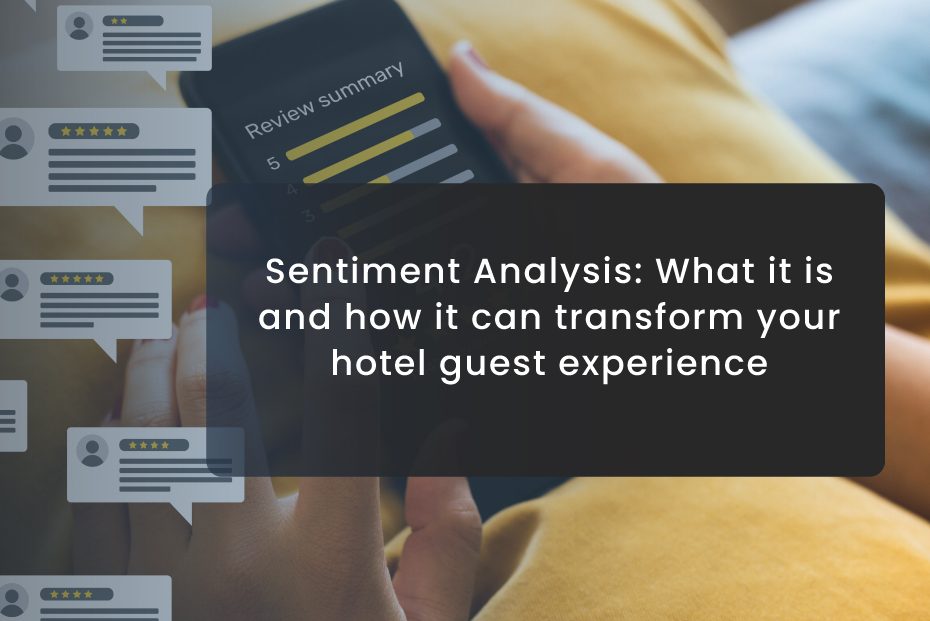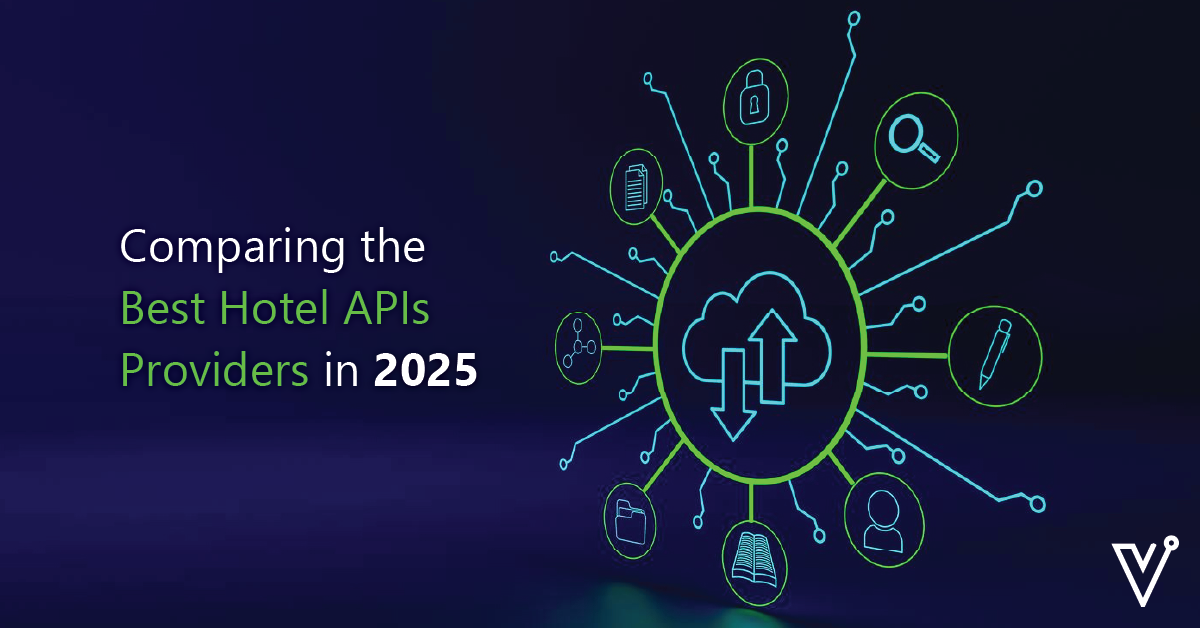Think about the last time you booked a hotel. How much did you research on Google, Instagram, and Facebook before making a purchase? Or how many times did you read hotel reviews on TripAdvisor, Google, and Expedia to book the hotel confidently? It’s natural to perceive other’s experience with the products or services you are about to invest in. In this digital age, there has been a surge of online reviews, guest ratings, and review apps which has empowered shoppers to make an informed booking decision. In fact, a TripAdvisor study says 81% of people frequently or always read reviews before booking a hotel.
To survive the intense competition in the travel space, any online travel business must focus on reviewing sentiment analysis. Understanding how your customers feel about your product offerings or services will help you tailor your products and services according to your customer’s needs. In this blog, we will break down sentiment analysis on guest reviews and how it can help travel companies enhance their products and services.
What is sentiment analysis?
If you ever wrote an online review of a hotel, commented about a product, or replied to brand surveys, then you have been through sentiment analysis.
Sentiment analysis or opinion mining is a technique to analyze textual data and interpret the sentiments behind it. With a mix of statistics, machine learning, and natural language processing (NLP), algorithms can identify and classify a reviewer’s feelings, thoughts or judgments into
- positive
- negative
- neutral
Most of the guest reviews on TripAdvisor, Google, Expedia, Yelp, etc., help travel businesses to understand their customer’s feelings about their travel products and offerings. However, sentiment analysis is not only to understand guest’s or customers’ feelings (for example, “the stay at this hotel was fantastic“). Data analysts are also interested in facts (for example, “the room didn’t have Wi-Fi”). Any data that displays the pros or cons of the hotel stay is relevant to the business’s growth strategy.
Why is sentiment analysis of guest reviews essential?

Analyzing guest reviews about their hotel stay allows hoteliers and travel agencies to learn what makes their guests happy or dissatisfied. This analysis can enable travel companies to tailor travel products and services based on their guest’s needs.
For example, a guest review could be,
“The front desk communication regarding check-in was pretty bad and disappointing.”
NLP-based sentiment analysis can label such reviews as negative and help brands take actionable steps to reduce dissatisfied guests. Sentiment analysis can help hotel businesses, OTAs, and tour operators understand the following:
- How guests feel about the hotel property
- Hotel amenities that guests enjoyed
- Hotel amenities that need improvement
- Hotel operations that need improvement
- Hotel brand perception amongst guests
This methodology gives a holistic understanding of improving your overall offerings and enhancing your guest experience.
Sentiment analysis for guest feedback
Once you have decided to incorporate sentiment analysis into your business, it’s time to identify the best sentiment analysis tools in the market. Sentiment analysis tools help to determine what to look for in customers’ text, such as reviews, social media posts, surveys, etc. The ML-based sentiment analysis tools perform more than scanning positive, negative and neutral keywords. The process involves
- data collection
- data processing
- data analysis
- data visualization
Let’s decode a guest’s review of Ritz Carlton, Atlanta on TripAdvisor.

Here’s how sentiment analysis AI breaks down the textual data into smaller sections:
- “I mainly travel to Marriott properties and have stayed at and enjoyed Ritz-Carlton properties around the world.”
- “I can say was really a disappointment.”
- “Mediocre amenities, fair service, multiple items in need of repair or replacement, fair service and average food.”
For each section, a sentiment is assigned. The first sentence is positive, while the second and third sentences are negative. Overall, the sentiment analysis identifies this comment as negative.
Now, the decision maker can understand what their guest feels about their brand and respond accordingly.
What are the benefits of sentiment analysis on guest reviews?
Online guest review sentiment analysis can help travel businesses in the following ways:
- Identify and understand real-time insights on how customers feel about your business
- Sentiment analysis provides upselling opportunities
- Analysis and processing of large dataset to enhance your travel products
- Enhance hotel operations and staff performance to deliver better guest experience
- Helps detect the intent behind the guest reviews
- Accurate and unbiased results
Conclusion
When it comes to understanding guest experience, the key is to look out for guest feedback. By using sentiment analysis to review guest feedback on your travel business, you can focus on areas of improvement and create better guest experiences. Sentiment analysis is not a one-time effort and needs continuous monitoring. It helps decision-makers find the real value of their business among the customers. So, if you want to understand your guest’s emotions and how they feel about your brand, then it’s time to incorporate and invest in sentiment analysis tools and take your guest experience to the next level.
About Vervotech:
Vervotech is a leading Hotel Mapping and Room Mapping API that leverages the power of AI and ML to quickly and accurately identify each property listing through the verification of multiple parameters. With one of the industry’s best coverage of 98% and an accuracy of 99.999%, Vervotech is quickly becoming the mapping software of choice for all leading global companies operating in the travel and hospitality industry. To learn more about Vervotech and the ways it can enhance your business in the long run contact us: sales@vervotech.com









